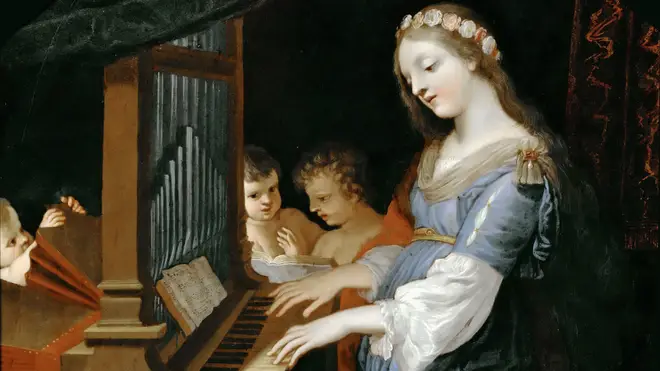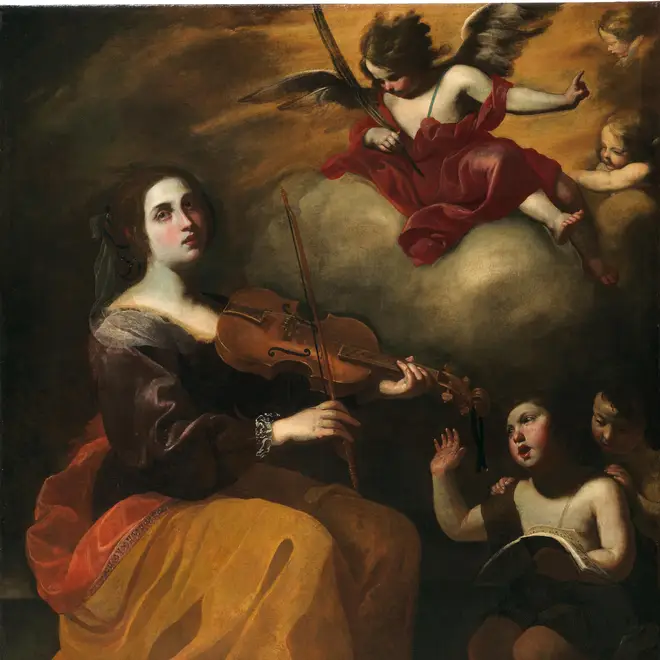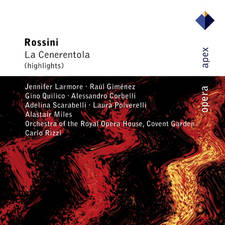Who was St Cecilia? Meet the patron saint of music and musicians
22 November 2024, 11:39 | Updated: 22 November 2024, 12:16

In the 3rd century, Roman noblewoman Cecilia was martyred for her beliefs. Today, she's better known as the patron saint of music, which is basically the highest honour in all of history.
St Cecilia is the patron saint of music and musicians – and her story is pretty impressive. She survived multiple execution attempts, to become one of the most revered icons in music history.
The story goes that the 3rd-century Roman noblewoman Cecilia vowed her virginity to an angel of God. When she was married against her will, Cecilia sat apart at her wedding, singing ‘in her heart’ to God as the musicians played.
It was this act that would later earn her the patronage of music.
Cecilia told her husband of her vow of virginity and that, if he tried to violate that vow, he would be punished by the angel watching over her. Her husband promised to uphold her wish only if he saw the angel himself.
All he had to do was be baptised and he would be able to see the mighty apparition of the angel. He did so, and he was met by the vision of Cecilia talking to the angel. His brother followed suit, and after beholding the visions, both brothers were martyred.
Read More: Carlo Acutis: Pope Francis to canonise 'saint of the internet age'

Cecilia would pass through further tribulations before she herself was martyred. She distributed her belongings to the poor and this elicited enough rage from the powers-that-be that they ordered her execution.
There are several stories told about how Cecilia was martyred, each as gruesome as the next, and somewhat varying in believability...

Fauré, Requiem - Pie Jesu (Sabine Devieilhe, Paavo Järvi)
One tells that she was burned at the stake. Incredibly enough though her purity protected her and she wasn't harmed at all. Purity-1, fire-0.
Another says that she was condemned to suffocate, trapped for 24 hours in a Roman bathhouse as the coals were piled onto the fire and the temperature spiked. But this wasn’t successful either, and Cecilia allegedly barely broke a sweat, enjoying a nice extended bath time.
Many versions of the tale say that three attempts were made to behead Cecilia with a sword, and yet, through incredible tenacity and strength of character, she lived through each one.
She remained alive for another three days before finally succumbing to her injuries, during which time she spoke to the pope to request that her home be made into a church.
From this violent end, Cecilia became St Cecilia, the patron saint of music and musicians. Her final resting place is Santa Cecilia in Trastevere, a 5th-century church in Rome.
Read more: The story of Maria Theresia von Paradis, the blind pianist, singer and composer who inspired Mozart
When is St Cecilia’s day celebrated?
St Cecilia’s Day is celebrated each year on 22 November, with music-making in honour of the patron saint of music held annually.
The first report of a music festival held in her honour was in Normandy in 1570. Many composers, including Purcell, and Britten (who himself was fittingly born on St Cecilia’s Day), have written works in St Cecilia’s honour.

Choir sings exquisite rendition of Allegri's 'Miserere mei, Deus'
Help Musicians’ annual Festival of St Cecilia
Musicians’ charity Help Musicians hosts an annual celebration of St Cecilia, which usually takes place at Westminster Abbey, St Paul’s Cathedral or Westminster Cathedral, and features their great choirs and other wonderful musicians and guests.
For 2020, in the face of the coronavirus pandemic, the celebration went ahead – but online. The charity partnered with Cathedral Music Trust, which supports cathedrals and choral music in the UK and beyond, to showcase wonderful and poignant performances and messages in a time that’s tested the classical music world.
The celebration featured performances by Westminster Cathedral Choir, Gloucester Cathedral Choir and British soprano Natalya Romaniw, as well as appearances from composer and conductor John Rutter, Help Musicians ambassador Isata Kanneh-Mason, and president of Cathedral Music Trust, Harry Christophers.










































